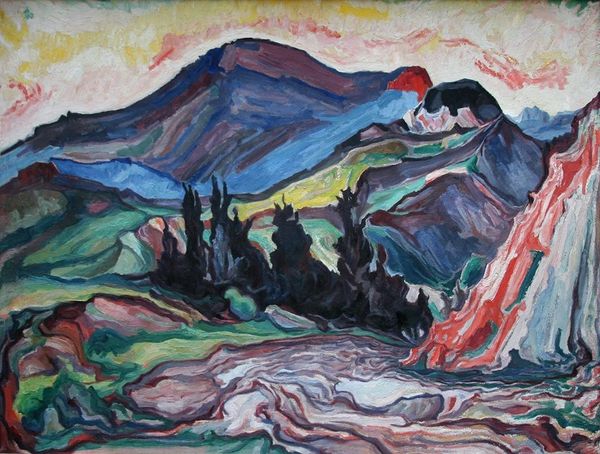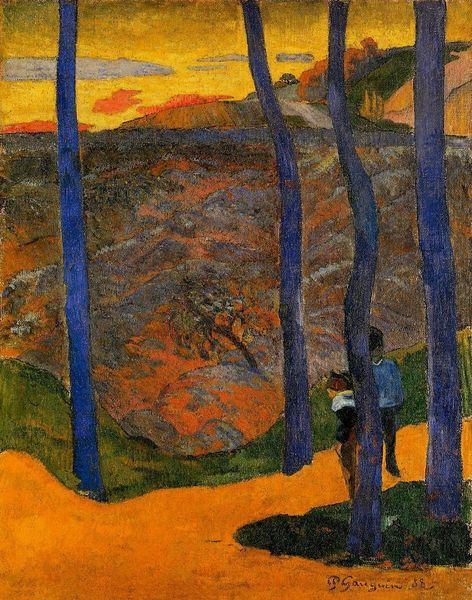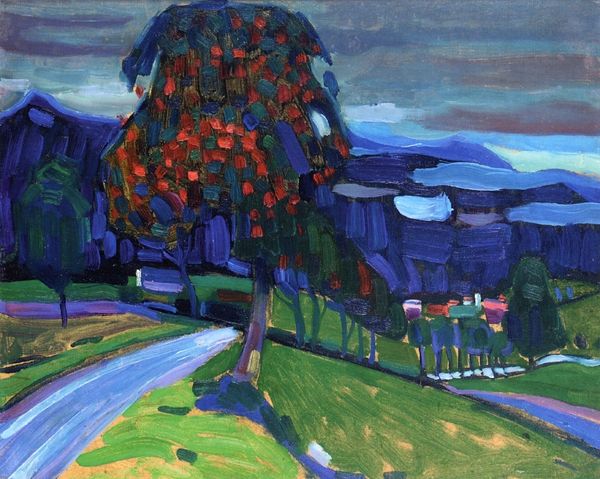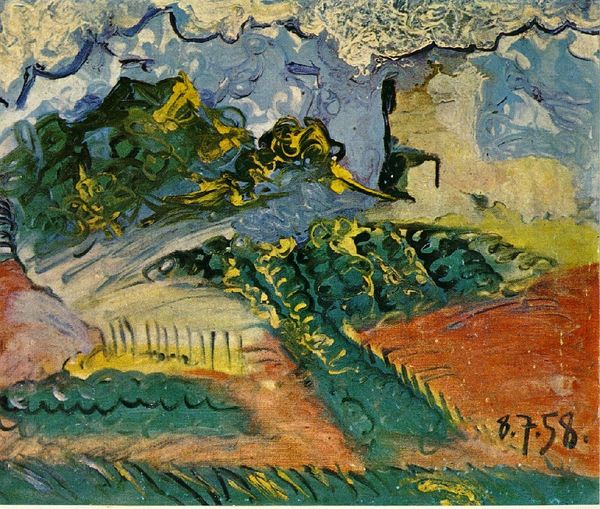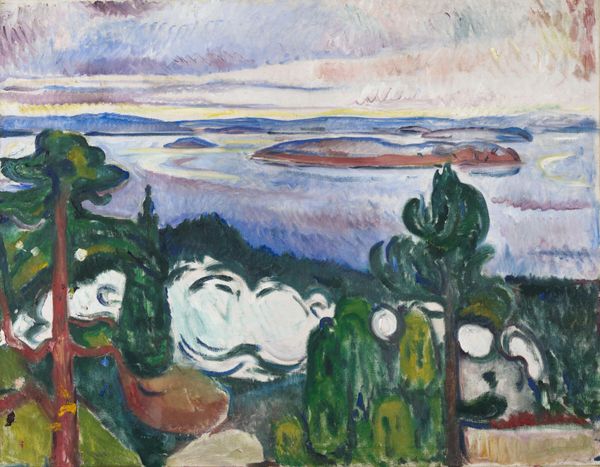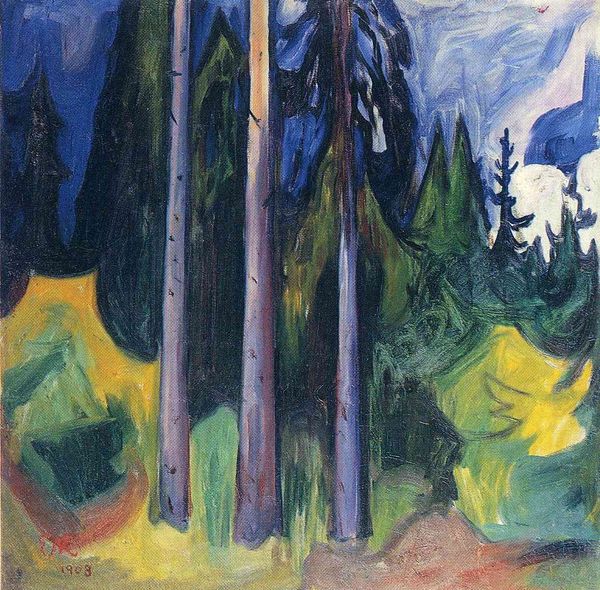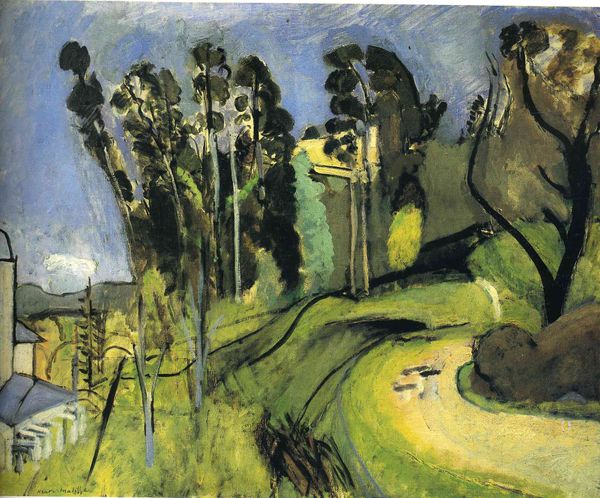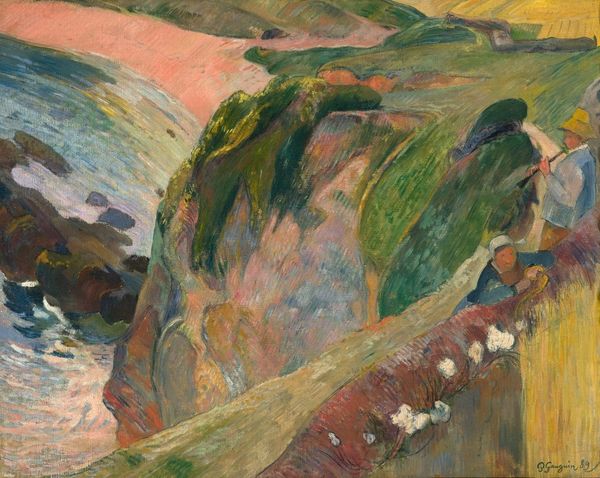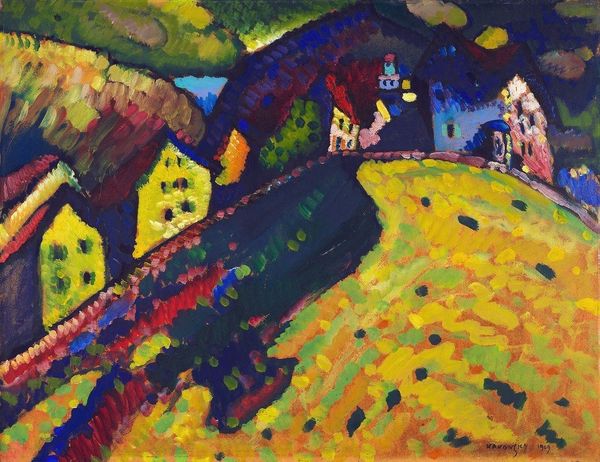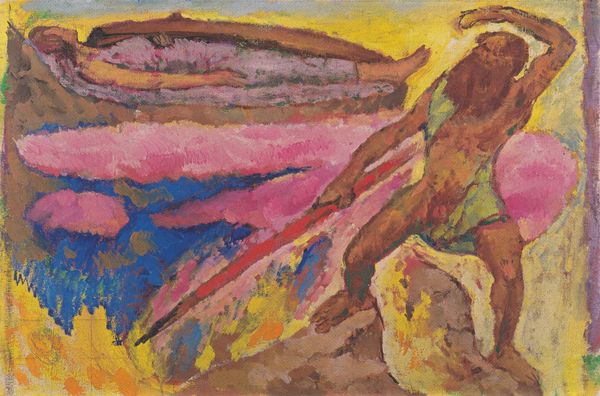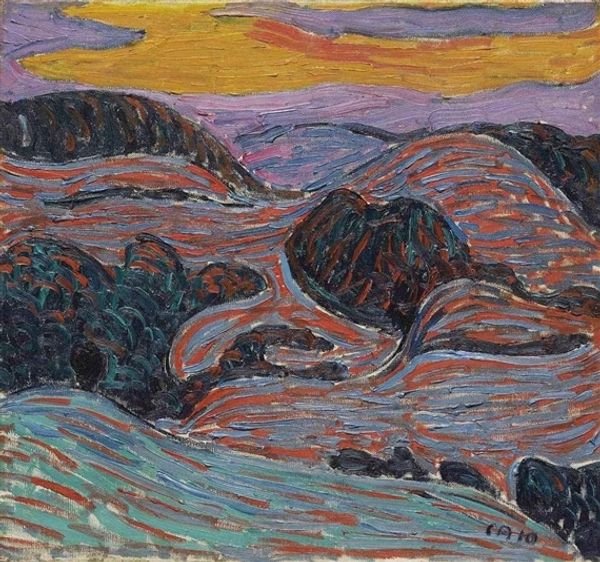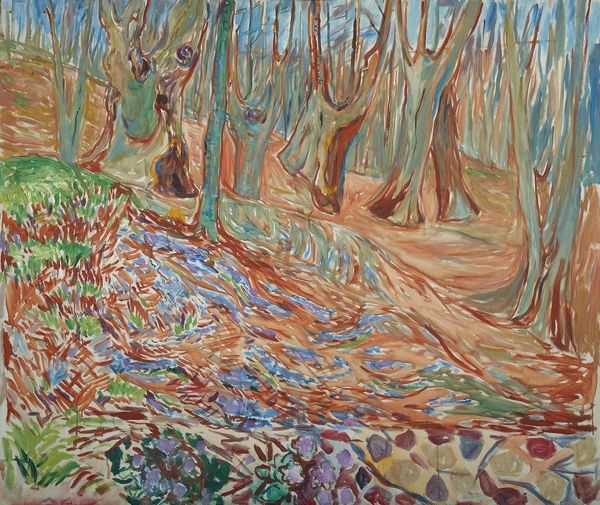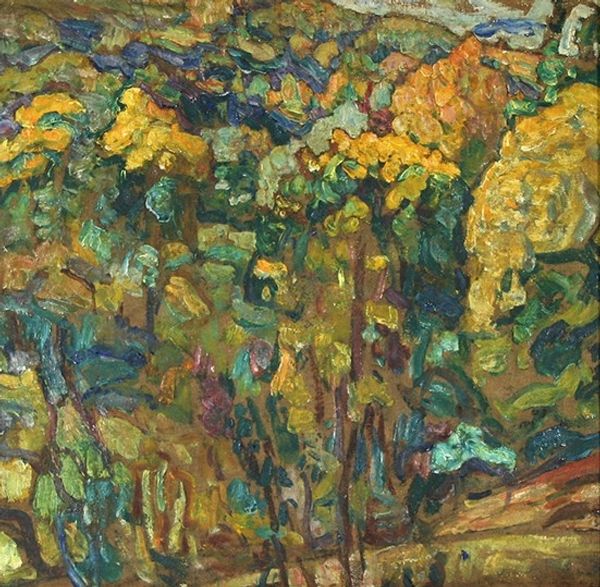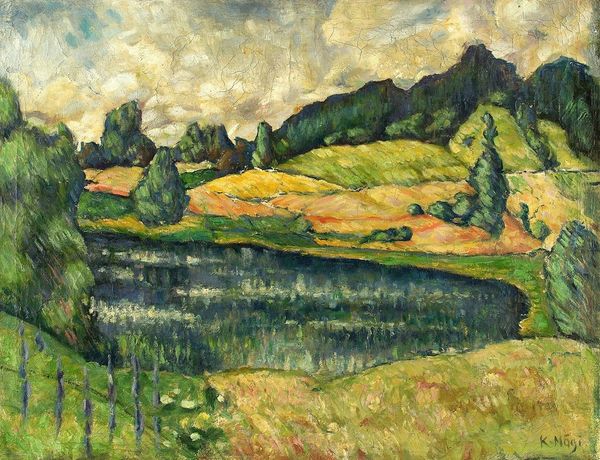
oil-paint
#
tree
#
fauvism
#
oil-paint
#
landscape
#
impressionist landscape
#
oil painting
#
neo expressionist
#
forest
#
mountain
#
expressionism
#
post-impressionism
#
expressionist
Dimensions: 80 x 100 cm
Copyright: Public domain
Curator: What do you make of this landscape, "From Thuringewald," painted by Edvard Munch around 1905? The piece is currently housed at the Munch Museum in Oslo. Editor: It’s initially unsettling. The palette choices aren't traditionally picturesque, which sets a certain emotional tone, even a feeling of unrest, right away. Curator: Exactly, there's something inherently evocative in his use of color and form. Considering Munch's broader oeuvre, filled with themes of anxiety, isolation, and the weight of the human condition, landscapes become arenas of subjective feeling. What sort of emotional landscape do you detect at play here? Editor: There’s a discordance, I think. That almost feverish reddish hue dominating the foreground clashes against the cool blues and greens. It's as if Munch projects his internal state onto the environment, depicting not what he saw, but what he felt. A silent cry seems painted onto the surface. Curator: Interesting point about silent cries. These colors do function beyond mere representation. In Thuringian folklore, forests were the dwellings of spirits, places of both danger and deep spiritual experience. Could it be that Munch wasn't just capturing a scenic view but a profound sense of the unknown within and without? Editor: Certainly. The landscape becomes a container for myth and individual psychology. His use of post-impressionistic strokes evokes a world in flux, where everything is connected yet also dissolves back into its own essential energies. You can't ignore how avant-garde the perspective is. It reminds me of the role of nature within feminist literature, where a rejection of patriarchy occurs through a deliberate engagement with the natural world. Curator: Absolutely, the distorted perspective pushes us toward an internalized space. Landscapes in Munch’s body of work often act like mirrors, reflecting the psychological condition of the perceiver back to them, saturated with layers of cultural understanding and emotional interpretation. Editor: The visual vocabulary—bold, simplified forms, emotionally charged colors—serves a purpose beyond pure aesthetics; it seeks to resonate with a deeper understanding of identity, trauma, and how the world around us shapes the realities we embody. It speaks to the collective unconscious as well as individual states of alienation and dread. Curator: Indeed. Art acts as a vital means of excavating our collective history. Editor: Yes, through art, we unearth fragments of the human experience to foster understanding across divides.
Comments
No comments
Be the first to comment and join the conversation on the ultimate creative platform.
